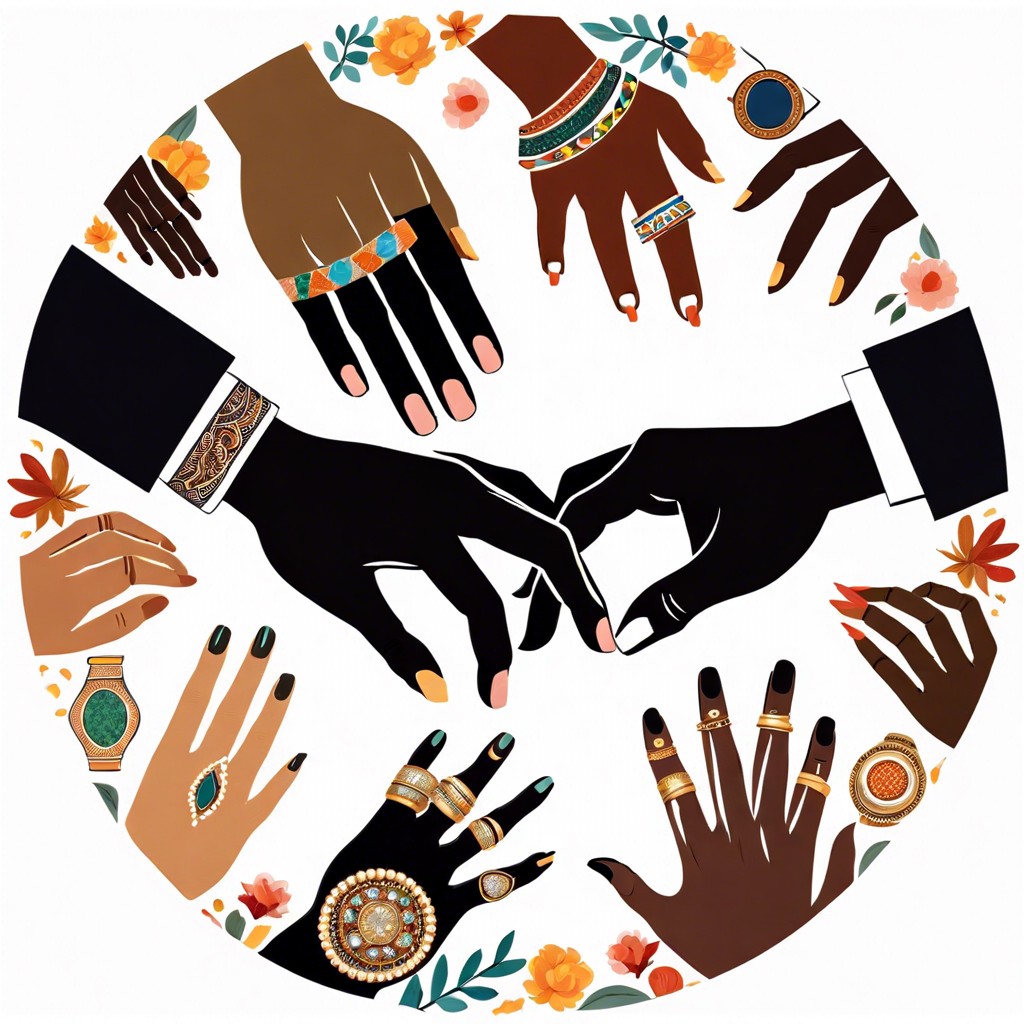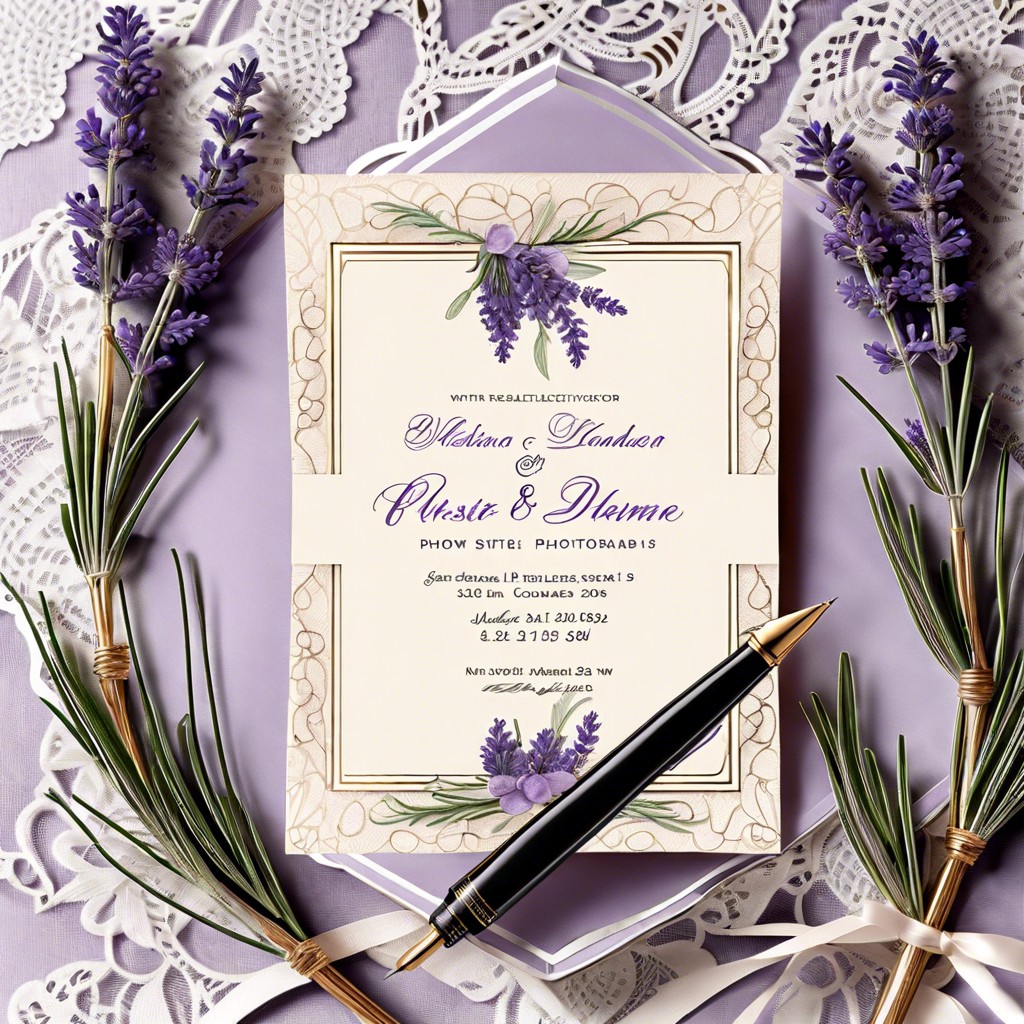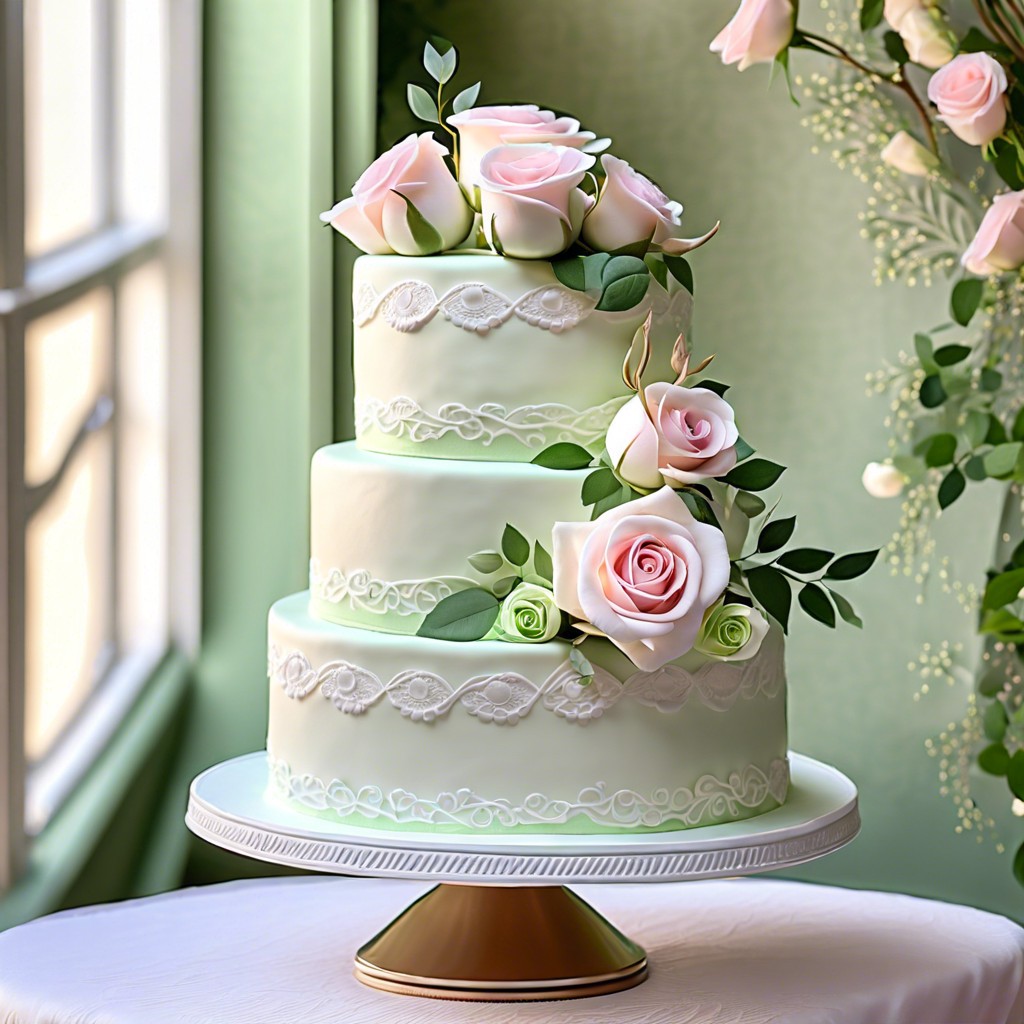Learn who traditionally buys the wedding bands and how modern couples often approach this decision.
Key takeaways:
- Groom traditionally buys bride’s wedding band, and vice versa.
- Wedding financing dynamics influence who buys the bands.
- Consider factors such as financial planning and cultural traditions.
- Purchase rings at least 3-4 months before the wedding.
- Choose the right venue – local jewelers, online retailers, specialty stores, or independent designers.
Traditionally, Who Buys the Wedding Bands?

In the realm of age-old wedding customs, it has generally been the responsibility of the groom to purchase the bride’s wedding band while the bride buys the groom’s. This practice holds symbolic value, as each partner presents the other with a ring, representing a mutual promise and exchange of love and commitment.
This tradition stems from a time when the groom’s family would also finance the majority of the wedding, though modern practices vary widely with many couples choosing to approach these expenses jointly. It’s important to note that adherence to tradition is a personal choice and couples today often make purchases together, reflecting equal partnership.
Who Is Paying for the Majority of the Wedding?
Understanding who is footing the bill for your wedding festivities can significantly influence various financial decisions, including the purchase of wedding bands. Traditional norms have often dictated that the bride’s family bears the majority of the wedding expenses. However, modern practices are shifting towards a more egalitarian approach, with both partners’ families contributing, or the couple themselves opting to finance their big day.
This shift in wedding finance dynamics allows for a more flexible interpretation of who should buy the wedding bands. Couples now often split the cost or decide to purchase each other’s rings as a personal gift. However, in cases where families are involved in funding, discussions about who will purchase the bands should take place early to align with the overall budgeting plan. Conversations about finances can be sensitive, so approach them with honesty and gratitude for any contributions offered.
How to Decide Who Buys?
Deciding who should purchase the wedding bands can be a matter of personal preference and financial circumstances. Consider the following points to help guide the decision:
- Financial Planning: It’s important to discuss openly and come to a mutual understanding about your financial situation, to determine who can more comfortably afford the expense.
- Cultural or Family Traditions: Some cultures or families have existing traditions that dictate who should pay. If this applies, you might follow these customs.
- Split the Cost: Many couples choose to split the cost of the bands to symbolize their joint investment in the marriage.
- Gift Exchange: In some instances, each partner may buy the other’s band as a gift, adding sentimental value to the rings.
- Combine Resources: Pooling resources from both sides can alleviate financial pressure and symbolize the merging of lives.
Remember, the priority is the commitment the rings represent, not who pays for them. Open communication is key to making the decision that works best for both partners.
When Do You Buy Wedding Rings?
Selecting wedding rings well in advance of the ceremony allows for a smooth, stress-free process. Aim to purchase your rings at least three to four months before your wedding date. This timeline accommodates custom designs, engraving, sizing, and any potential alterations that might be needed.
Factors to consider include:
- Customization: Custom designs can take longer to create. Starting early ensures you have ample time for the rings to be crafted to your specifications.
- Seasonal Sales: Keep an eye out for special sales or promotions, particularly around holidays, to possibly secure better pricing.
- Engraving: If you plan on having your bands engraved with a special message, date, or design, factor in additional time.
- Budgeting: Earlier selection helps spread out wedding expenses, easing financial pressure as the big day approaches.
- Sizing: A proper fit is crucial for comfort and security. Allowing time for resizing ensures your bands will fit perfectly on your wedding day.
Where Do You Buy Wedding Rings?
Selecting the right venue for purchasing wedding bands is crucial. Local jewelers offer a personalized service, often allowing for customizations that match your unique preferences. Explore their collections for quality and authenticity, as well as the opportunity to have a direct conversation about the craftsmanship behind each ring.
Online retailers provide a broader range of options along with the convenience of shopping from home. They often feature extensive reviews and may offer generous return policies and competitive pricing. Be sure to verify the credibility of the site and understand their warranty and return policies before making a purchase.
Specialty stores focus on wedding bands and may offer a boutique experience with high-end exclusive designs. Their expertise in the field can be beneficial for finding the perfect band that symbolizes your union.
Lastly, consider artisan markets or independent designers who craft one-of-a-kind pieces. This allows couples to support small businesses and artists within their community while securing a unique symbol of their love.
Regardless of the location chosen, always ensure the rings come with proper certification and a thorough understanding of the care and maintenance they will require over time.



